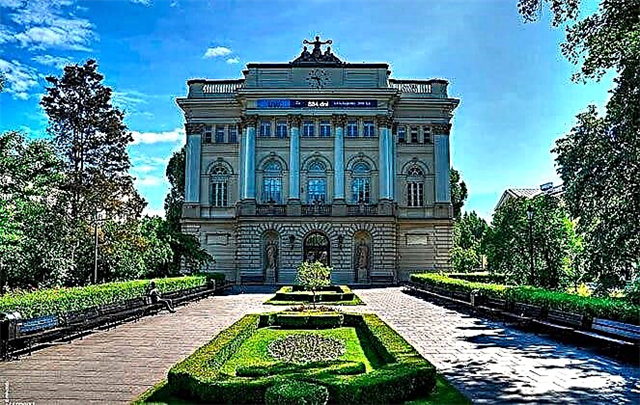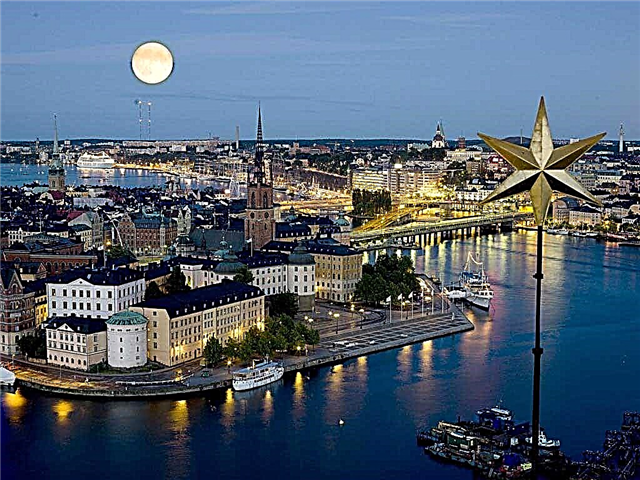Why do so many professionals immigrate to work in Austria? This country has a highly developed economy, favorable conditions for business and decent wages.
Economic situation
In the economic ranking of the countries of the world, Austria ranks 28th place, Europe - 14. GDP reaches $ 395 million... The unemployment rate is 5,4% (less than in Russia, the USA and a number of European powers). In economic terms, the state is developing steadily.
Also in Austria, some types of salaries are called gross and net.
Net - the size of wages after all deductions - taxes, deductions, insurance fees.

Gross, or gross salary, is the amount of wages before deductions - taxes, insurance premiums and other charges.
The concept of "minimum wage" does not exist in this state. There is a minimum hourly wage - €8,5... Taking into account full employment (40 hours per week), it can be assumed that the minimum wage for an Austrian is € 1300-1500 gross... Average salary is in the area €3000–3500 gross (approx 2200 € net). Representatives of scarce professions receive from 4000 €... In terms of average wages, Austria ranks 3rd among the world.
Salary by industry in 2021
In Austria, the professions of IT specialists, doctors, managers and engineers are most in demand. The higher the qualifications, the higher the wages in these areas. Accordingly, representatives of low-skilled professions (cleaners, gardeners, etc.) receive the least amount.
Payment by industry
| Minimum | Average | Average starting | Maximum (approximate value) | |
| Programmer | 1000 | 5525 | 3800 | 8000 |
| Doctor | 8025 | 3080 | 9000 | |
| Engineer | 5250 | 3400 | 7200 | |
| Manager | 4200 | 2200 | 6000 | |
| Financier | 6095 | 3500 | 7200 | |
| Architect | 3450 | 2400 | 6000 | |
| Energy drink | 6640 | 2021 | 8000 | |
| Lawyer | 3275 | 2770 | 5500 | |
| Teacher | 3970 | 3150 | 5000 | |
| Policeman | 3630 | 3260 | 4000 | |
| Secretary | 1880 | 1400 | 2500 | |
| Cook | 1480 | 1100 | 2500 | |
| Salesman | 1170 | 1100 | 2000 | |
| Waiter | 955 | 800 | 1200 |
Values in the table are given in EUR, gross. For foreigners, the numbers are similar, but it is more difficult to get a position - employers prefer Austrians to immigrants.

You May Also Like
What factors affect the level of salary
The size of the salary in the state depends on many factors.
- the demand and scarcity of the profession (for example, the demand for programmers, doctors and construction engineers);
- professional experience, work experience;
- dependence on the federal land.
The most attractive vacancies in Vienna and the major cities in the neighborhood. But the competition is also there.
Influence is also exerted by:
- education - employers do not pay much attention to the diploma, but prefer specialists who graduated from Austrian and European universities;
- age - young specialists are given more preference, especially in the IT field;
- gender - on average, men work more productively and receive a higher salary (but this depends on the field of activity);
- qualifications - it is easier for highly qualified workers to obtain both a visa and the job itself;
- company - the larger the corporation, the more they pay employees.
Foreigners should be suitable for as many conditions as possible, because the indigenous population is more appealing to employers.
Features of the taxation system
Austria has a complex and tightly controlled taxation system. The percentage is high and depends on income. In case of non-observance of some rules, a fine of a substantial amount is immediately imposed. In order not to get caught in non-payment, you need to understand all the bureaucratic nuances.
A certain amount can be returned at the end of the year if any of the following expenses have been made during this time:
- special (charity and donations, buying a house or apartment, insurance, etc.);
- work-related (purchase of transport or work equipment, moving associated with a change of workplace, etc.);
- extraordinary (payment for education of children, urgent expensive operations).
Income tax
Income tax is direct, levied on salaries and depends on the size of the annual income. People who have several jobs, permanent residence and are registered in the country as legal entities are accountable for all their earnings (according to general rules). As a rule, everything is covered by the employer. If a person has more than two sources of income or earns more than €2000, then he must prepare the report himself. Freelancers should also report if they earn more. 730 €.
You May Also Like

Persons who have lived for more than 6 months on the territory of the state, as well as those who have a permanent place of residence, are considered residents. Accordingly, they become taxpayers like everyone else.
Progressive scale of income tax
The state has the so-called progressive taxation. This means that with an increase in annual earnings, the tax rate also increases.
Dependence of salary to charged interest:
- up to € 11,000 - 0%;
- from € 11,000 to € 25,000 - 36,5%;
- from € 25,000 to € 60,000 - 43,2%;
- over € 60,000 - 50%.
Fixed tax of 20%
20% levied on certain categories of people with limited liability. These include:
- people of art and culture;
- artists, show business figures;
- athletes;
- people who give paid consultations.

Taxation of companies and minimization of the base
Companies with unlimited liability (having a legal address, head office, operating on a permanent basis) pay the full amount, including from foreign funds.
They are required to draw up reports on the following payments:
- VAT in the amount 20% (10% for essential products), the annual report is submitted at the end of June;
- corporate for GmbH, AG or private foundations - 25–55% depending on the profitability of the company;
- for royalties - 20%;
- for dividends - 27,5%;
- insurance for employees - 3,8%.
They are paid 4 times a year, an accounting report is needed annually.
You can minimize the base in the following ways:
- return payments of hidden dividends from the company;
- if expenses were made to improve conditions (purchase of new equipment and transport, repairs, contributions were made);
- special costs have been made;
- subtract 400 € for pensioners with children, 764 € for the lonely.
Other
Austrian taxation also applies to the following areas:
- Agriculture;
- hired labor;
- on property (real estate, etc.) and operations with it;
- independent activity;
- service sector, paid education;
- investments, etc.
Most of them are indirect. For property - 25%, for ownership of real estate - 1%... There are state fees in the amount of 2%, municipal taxes in 3% and etc.

The ratio of salary and living expenses
Life in this state is suitable for wealthy people. It is expensive, so a stable income is needed for a comfortable life. Taxation is very tough, and with it, salaries cease to be “exorbitant”. Most Austrians have 2-3 thousand euros net and quite happy with it.
At the end of the month, nothing remains of the earned. On the 13th and 14th salaries (holidays) you can afford something "above average". Real estate is also expensive, only highly qualified doctors can afford to buy an apartment.
But all this is for the sake of improving the quality of life, so even the middle class lives comfortably.
Unemployment Rate and Prospects for Migrants
The unemployment rate is low (5,8%), the market is wide and competitive. It is possible to get a high-paying job as an immigrant, but for this you need to be an excellent specialist in your field. You can live in Austria without even knowing the language, getting a part-time job in the service sector or with the Russians who have opened their own business here.
Despite the fact that wages in the state are not very luxurious compared to other European countries, the quality of life is growing thanks to the conscientiousness of the Austrians.For wages in the area €3000 you can afford entertainment and luxury goods. However, the sought-after wealth-minded would be better off looking for other options.











